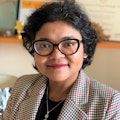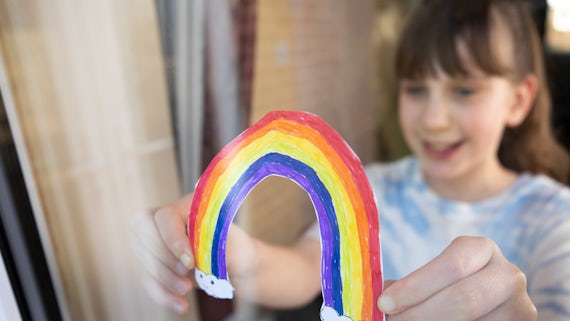The COVID-19 pandemic has highlighted social inequalities experienced by people across the country, with children and young people among some of those most affected.
Social distancing measures, school closures, and bans on outdoor activity have had a particular impact on those young people who are living in overcrowded households or high-rise flats, with no access to gardens or limited access to the internet.
A team from our School of Geography and Planning and our Welsh School of Architecture are aiming to help improve the wellbeing of children and young people following the pandemic, through a project that helps children play a part in shaping a pandemic recovery plan for their community.
The team are working with the community in Grangetown, Cardiff – one of those hardest hit by the pandemic.
“The project is informed by my research which focuses on how the design of children’s neighbourhoods and access to nature can help improve health and wellbeing,” says project lead Dr Matluba Khan, who is a co-founder of children’s charity A Place In Childhood.
“It has also been great to work with a community that is very close to the university, and close to where I live. It’s a chance to work with a community that I’m part of.”
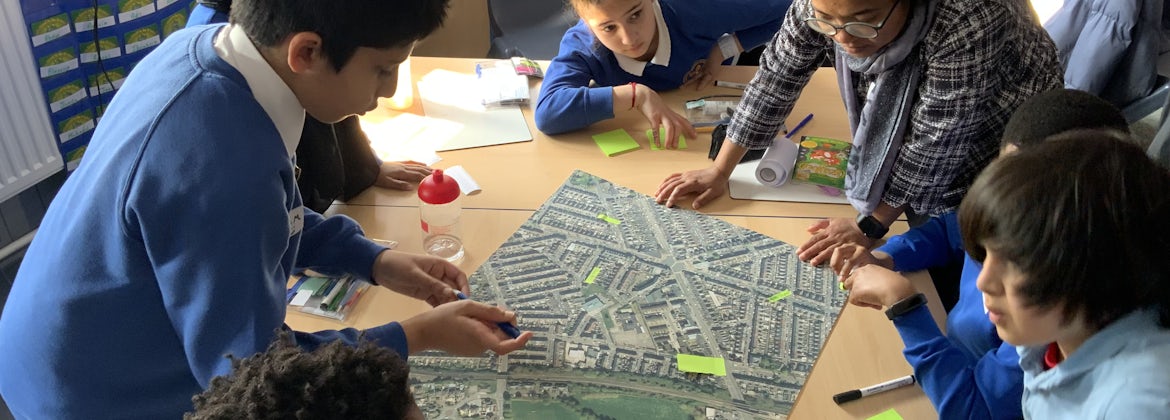
Dr Khan working with young people in one of the project's workshops, discussing their ideas for how to improve their neighbourhood.
Giving young people a voice
The project team are holding a series of workshops for children and young people of different age groups, to hear how COVID-19 has impacted their everyday experience and the challenges they are facing – as well as the positive aspects of their neighbourhood. Activities at the workshops include map-making, photo walks, and creative sessions making 3D models.
Working alongside the young participants in the project, the team will co-create a COVID-19 recovery plan for the Grangetown community that meets the needs of its children and young people.
“With Covid complications and disparity of resources, many communities and especially children have faced rapid changes in their daily lives that will have an ongoing effect on their physical and mental well-being for years to come,” explains project community engagement assistant Shoruk Nekeb. “It is important that we have a recovery plan set out where the voices of children and young people are not simply brushed over, but integrated in the recovery of society as a whole.”
The university team are working alongside the Child Friendly City team of Cardiff Council, who are match-funding the project, to ensure that the plan has a real positive impact on people’s lives. The recovery plan that comes out of the project will inform Cardiff’s City Recovery and Renewal Strategy with insights on what children and young people need and envision for post-pandemic cities.
“Our ambition is for Cardiff to be a city with children and young people at its heart, where the rights of children and young people are respected by all, a great place to grow up,’ says Lee Patterson, Child Friendly City Coordinator at Cardiff Council. “It’s vital to involve children and young people in developing a response to the pandemic, including the project with Cardiff University.”
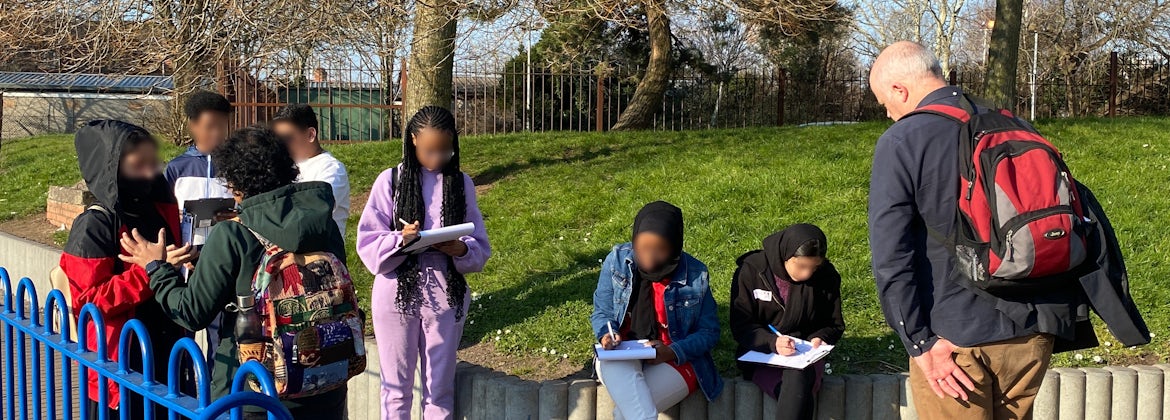
Young people taking part in one of the project's photo walks. Other activities included map-making and creative model-making sessions.
A critical eye
The children and young people taking part in the project have relished the chance to have their views heard, and to think about the different features of their neighbourhood. “It helps realise what we could improve in an area,” says one young participant. “It made you look at your area in a different way, in a more critical way.”
Ideas proposed by the young people in the workshops in the initial sessions included more outdoor sport facilities, play areas tailored to disabled people, more trees and flowers, seating areas, communal women-only spaces, and safer ways to cross busy roads.
"This project has for many children been the first time that anybody has asked them about their experience of living in their neighbourhood,” says Dr Neil Harris, a member of the project team.
“And yet, despite this, if you ask children about their experience they can readily relay the places they enjoy spending time in, the places they find scary or fearful, and express their concerns about playing safely in their neighbourhood.”
“Some have been very imaginative - and can envision how their neighbourhood could look if their views were more fully considered and acted upon. The moment when one school pupil said 'I can see it - I can actually see it!' is when I realised the importance of enabling children to design and plan their neighbourhood."
This thought is also shared by the young people taking part: “Normally you don't think you can actually do something to change because you're just one person,” says one young participant. “But actually getting this opportunity you see that maybe you can.”
The recovery plan, launched in February 2023, together with a toolkit on how to co-create a neighbourhood plan with children and young people for planers, designers, teachers and youth workers is available here:

A Grangetown to grow up in
A children and young people’s plan for Grangetown, Cardiff.
If this document cannot be read by your assistive software, you can request an accessible version by emailing web@cardiff.ac.uk. Please include the assistive tools you use and the format you require.
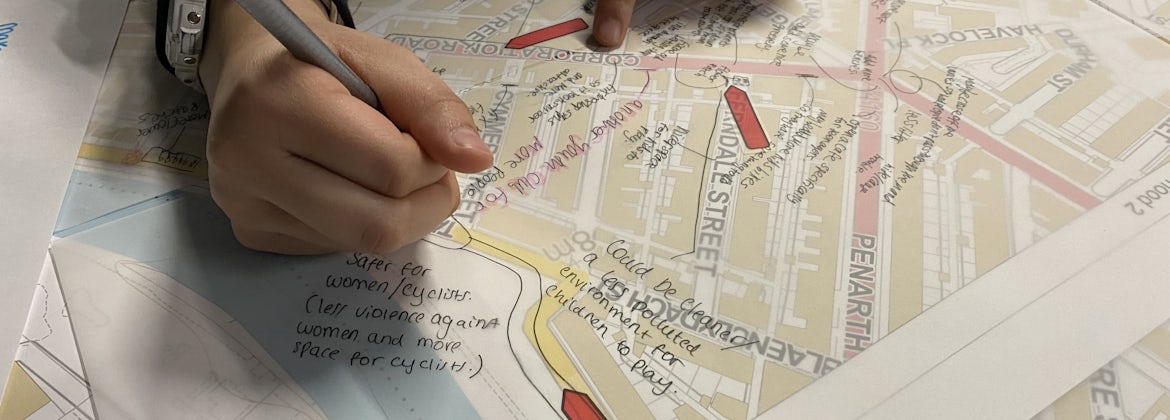
Some of the children's ideas for improving their neighbourhood included safer cycling routes, play areas tailored to disabled children, more trees and flowers, seating areas, and communal women-only spaces.
Plans for the future
Dr Khan and the project team hope that the project can provide a blueprint for other communities to help improve the wellbeing of children and young people in their neighbourhoods. As well as the child-friendly recovery plan for Grangetown, another outcome of the project will be a toolkit that shows other groups how to engage young people and children in their area.
“We want to create something that community leaders, planners or local authorities can use to gather young people’s views on the places they live in, and incorporate these into planning,” explains Dr Khan.
For the next stage, the team intends to apply for further funding to pilot activities in Butetown, another diverse community in Cardiff which has been hard hit by the pandemic. But the team’s longer-term aim is to extend the project beyond Wales, and to introduce the toolkit to communities in Bangladesh, India, Tanzania and Kenya.
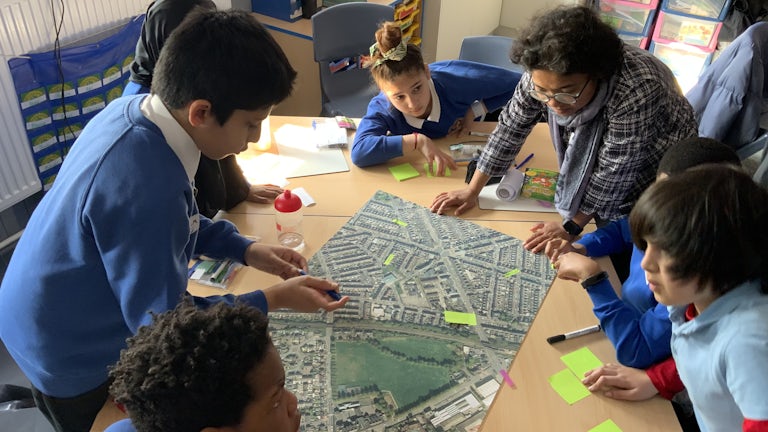
Our local community projects
We use our wide range of expertise to support and deliver impactful community led projects alongside student and staff volunteers.
